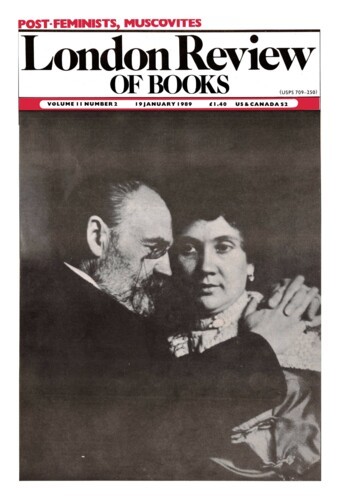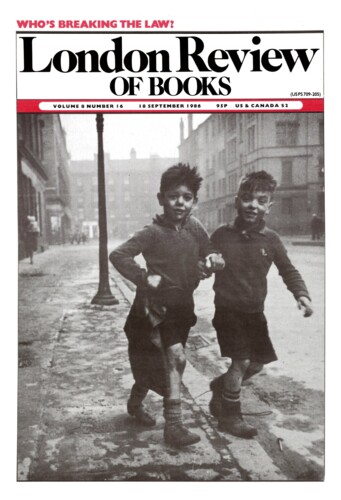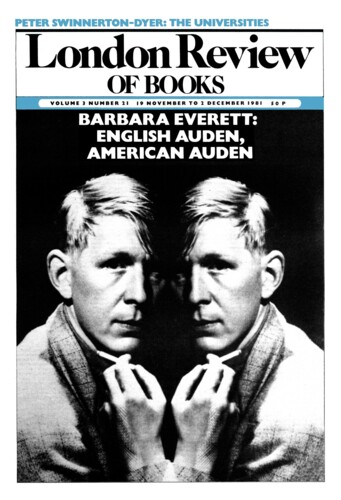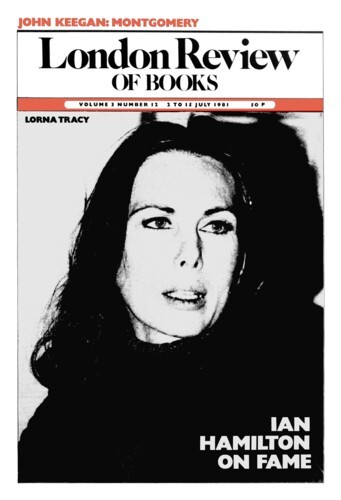Dislocations
Stephen Fender, 19 January 1989
What constitutes an American writer’s landscape? In Great Britain it’s common to refer to ‘Brontë country’ or ‘Hardy country’. The Lake District belongs to Wordsworth more than to any landowner. But ‘Hemingway country’? He lived in at least thirty parts of the United States, not to mention Cuba, Paris and the Riviera. Stephen Crane’s birthplace is now a children’s playground in New Jersey, William Faulkner’s a Presbyterian parsonage. The Oxford Illustrated Literary Guide to the United States, from which these titbits come, provides further unwitting refutations of its own project, which is to fix American writers in their proper locales: ‘It was while walking home with a student one evening that [Wallace] Stevens … spoke of his recent poem, “Notes toward a Supreme Fiction”. “I said that I thought we’d reached a point at which we could no longer really believe in anything unless we recognised it was a fiction.” Exactly. The ‘place’ was Hartford, Connecticut, but it could have been anywhere.





